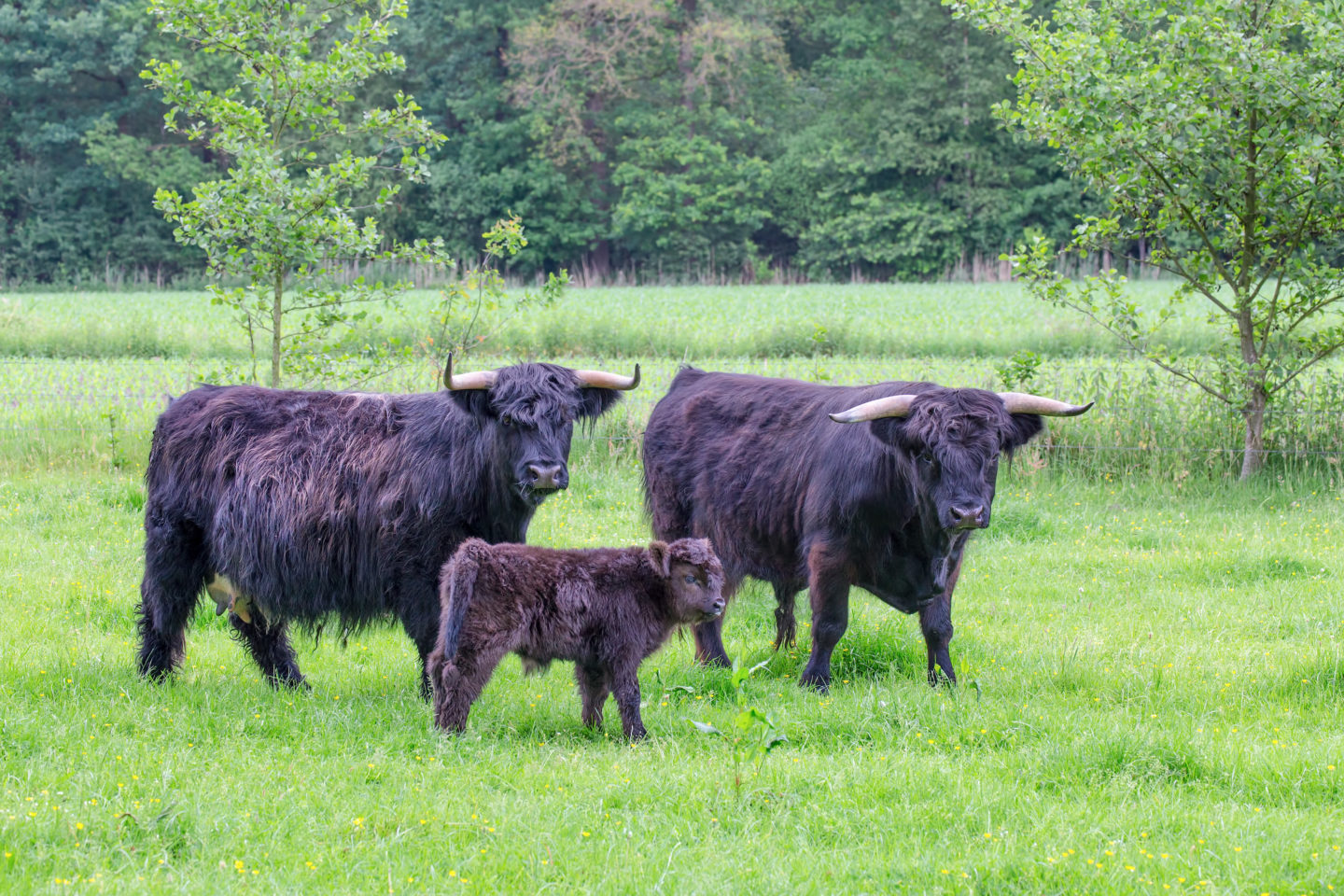The Scottish Government is facing unprecedented pressure to overhaul its plans to cut climate pollution from farming from a powerful alliance of food and environment groups.
A new coalition of 50 organisations and experts has written a joint letter to ministers urging a “just transition towards carbon neutral farming”. The signatories include the farmers’ union, crofters and landowners, as well major environmental and wildlife groups.
Agriculture is responsible for nearly a quarter of all Scotland’s climate emissions. But current government plans only propose a nine per cent reduction in emissions between 2018 and 2032, less than for other sectors.
Farming releases two gases that warm the globe much faster than carbon dioxide. Cattle belch methane that they produce from eating, and nitrous oxide escapes when fertilisers are applied to soils.
The joint letter acknowledges that all those involved have a shared responsibility to fight climate change. “We need Scottish Government support to ensure a fair and supportive approach to move farming into a low-emissions future,” it says.
The letter calls for more efficient use of nitrogen fertilisers, along with investment and testing of soils to prevent erosion. It urges an increase in tree planting to help store carbon and protect soils.
“Low-carbon farming practices and systems must become the norm, in order to reduce emissions. To do this we need to promote and support both organic farming and efficient mainstream production,” the letter says.
“Scotland needs to begin a fair and just transition to carbon-neutral farming now. We have the potential to establish ourselves as a real leader in sustainable farming.”
The National Farmers’ Union in Scotland said it was “delighted” that the joint letter had received such widespread support. “Scotland’s farmers and crofters deliver a huge amount for the environment whilst producing high quality food,” said union president, Andrew McCornick.
“With the right support, I am confident we can increase this alongside reducing our emissions and increasing our profitability. That bright future is a goal we should all unite around.”
Scottish Land and Estates, which represents landowners, was also pleased to support the letter. “No sector should be immune from our collective efforts to tackle climate change and farmers and land managers have a vital role to play,” said the group’s chairman, David Johnstone.
“Some of the changes that we need to see will be challenging to established ways of doing things, but with the right policies in place, and the right support, advice and training, farmers and land managers can deliver a great deal.”
The Royal Society for the Protection of Birds in Scotland argued that farmers and crofters could help halt climate change by switching to carbon-neutral practices. “Such action can help farmland wildlife at the same time; the benefits go hand in hand,” said the society’s Jim Densham.
“It’s clear there is widespread demand for government to take action and put in place a strong suite of policies to make the transition to these systems the obvious choice for all farmers and crofters.”
Others who signed the letter include the Scottish Crofting Federation, the Church of Scotland, the trade union Unite Scotland, the campaign group Commonweal, the National Trust for Scotland, WWF Scotland, Scottish Wildlife Trust and Friends of the Earth Scotland.
One of the experts who also backed the letter is Pete Smith, professor of soils and global change at the University of Aberdeen. “The land sector contributes about 24 per cent of all human greenhouse gas emissions, so action in farming needs to be part of the climate solution,” he said.
“By adopting this ambitious net carbon neutral target for the agricultural sector, Scotland has the opportunity to lead the world toward the goals and targets set out under the Paris climate change agreement.”
The Scottish Government stressed that it recognised the benefits of low-carbon farming and would continue to work with the industry. “We are delighted to see the signatories in this letter signal their ambitions for the agriculture sector,” said a spokesperson.
“We have committed £148 million to rural businesses since 2015 to promote low carbon farming and protect the environment, and our climate change plan includes measures aimed at educating and encouraging farmers about the benefits of environmentally friendly agriculture.”
Farmers back bid to cut climate pollution
Carey Coombs farms upland beef and sheep on a 350-hectare farm at Dunsyre in South Lanarkshire. He has signed the letter to the Scottish Government calling for backing for carbon-neutral farming because he thinks things need to change.
“Scottish farmers have always been great innovators,” he said. “Given the chance they will grasp the opportunities to be at the forefront of the adoption of modern farming techniques that will integrate quality food production within balanced agri-ecological systems.”
Antonia Ineson helps run Myreside Organics, a small market garden in Perthshire that grows salads and vegetables for sale locally. She also signed the joint letter.
She said: “Addressing climate change through farming systems which protect soils, avoid the use of artificial fertilisers, and sell efficiently to local markets needs to be a key part of Scotland’s new climate change bill.”
Pete Richie from the food justice campaign, Nourish Scotland, welcomed the widespread support for the letter. “All farmers, large and small, tenants and owners, now need the support and knowhow to help them deliver,” he said.
A version of this story was published in the Sunday Herald on 25 March 2018.














